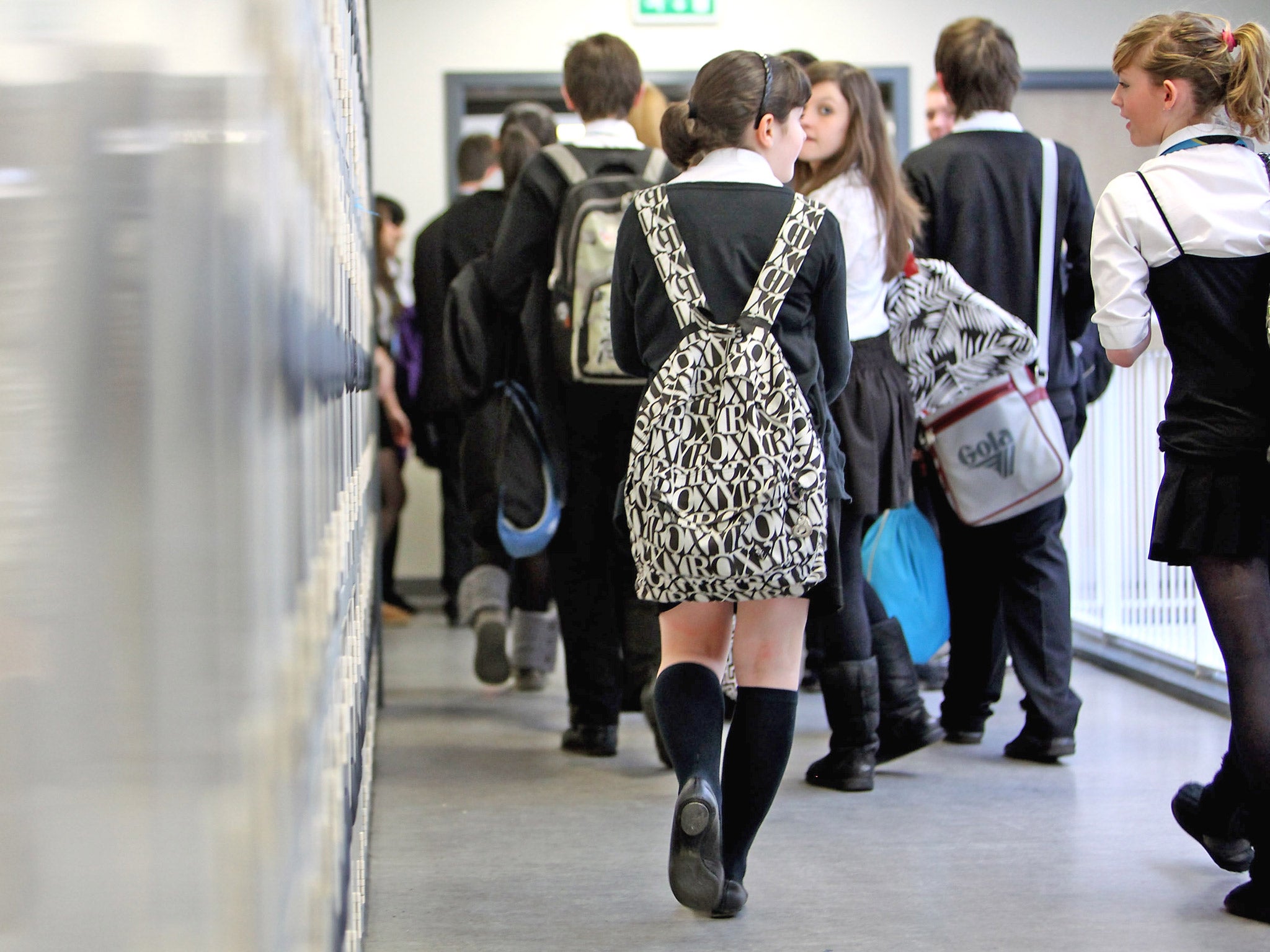Schools tricking Ofsted inspectors by sending problem pupils home
Illegal practices uncovered during investigation - which includes a survey of 1,000 teachers

Your support helps us to tell the story
From reproductive rights to climate change to Big Tech, The Independent is on the ground when the story is developing. Whether it's investigating the financials of Elon Musk's pro-Trump PAC or producing our latest documentary, 'The A Word', which shines a light on the American women fighting for reproductive rights, we know how important it is to parse out the facts from the messaging.
At such a critical moment in US history, we need reporters on the ground. Your donation allows us to keep sending journalists to speak to both sides of the story.
The Independent is trusted by Americans across the entire political spectrum. And unlike many other quality news outlets, we choose not to lock Americans out of our reporting and analysis with paywalls. We believe quality journalism should be available to everyone, paid for by those who can afford it.
Your support makes all the difference.Hundreds of schools are illegally excluding children – sometimes to get rid of them during Ofsted inspections or having them taken off the school’s roll for high-stakes tests – an investigation by the Children’s Commission for England has found.
Illegal practices uncovered during the investigation – which included a survey of 1,000 teachers – include:
* Sending pupils home for disciplinary reasons without recording it as an exclusion – 6.7 per cent of schools were guilty of this (1,600 schools)
* Sending children with statements of special education needs home if their teaching assistant is unavailable – 2.7 per cent (650 schools)
* Pupils being put down as “authorised absent” or “educated elsewhere” when the school had encouraged them to stay away – 2.1 per cent (540 schools)
* Schools encouraging parents to educate their children at home – 1.8 per cent (or 192 schools) were guilty of this.
The practices flourish, the report argues, because there is “no meaningful sanction” against schools acting illegally and the incentive structure for schools “unintentionally” encourages heads to adopt illegal tactics.
It urges a range of get-tough measures to curb the practices, including major fines and placing any headteacher found to use illegal methods of exclusion on a professional misconduct charge.
The report also warns that it is a criminal offence to falsify the register of schools to mask an exclusion, i.e. by stating the pupil is being educated elsewhere.
“At a conservative estimate, this affects thousands of children in several hundred schools,” the report concludes. “It ought to be a source of shame for the whole education system that those who are responsible for the education of children are, however rarely, illegally preventing them from gaining... education.
“This issue should become a much higher priority for all those involved in our schools, regardless of the number of children involved,” the report concludes.
Education standards watchdog Ofsted should be told of any illegal exclusions at a school, the report adds.
Dr Maggie Atkinson, the Children’s Commissioner, said: “For a long time, illegal exclusions from school have been an elephant in the room for educators, policy-makers or others. Whenever I speak to headteachers, education psychologists or education welfare officers anywhere in England, all will admit, always in strict confidence, that these exclusions do sometimes happen. But nobody wants to go public or is prepared to name names.”
She added: “It is simply not acceptable for the education of thousands of young people to be disrupted, illegally, by the actions, or the inactions, of adults whose job it is to show them an example to live up to and to educate them.”
In particular, Dr Atkinson stressed: “Asking the parents of a disabled child to repeatedly take them home early simply due to a lack of support is unacceptable.”
One teacher told researchers: “As far as I’m aware in our school, last year we had 12 [pupils] going off on a project. And we find invariably someone goes ‘oh, there are these projects’ – the chances are you’re never ever going to see them again... And you hear six months later, ‘just so you know, so-and-so has disappeared off the register’.”
Another education professional added that schools were being slated if they had poor attendance figures “so actually if you persuade a parent to educate them at home, then they’re off your roll and their non-attendance doesn’t count”.
Join our commenting forum
Join thought-provoking conversations, follow other Independent readers and see their replies
Comments